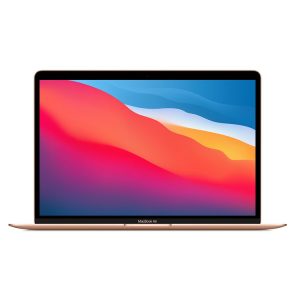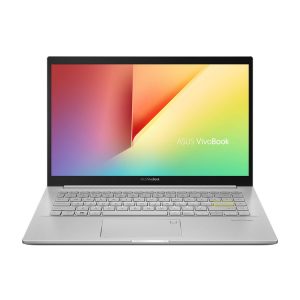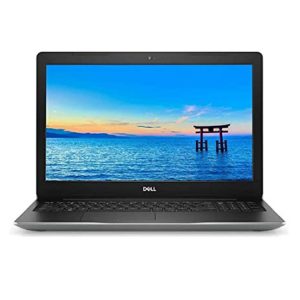How long do laptops last? What are the signs to know when your laptop needs an upgrade?
According to experts, laptops under $700 can last up to 4 years, laptops around $700-1000 can survive up to 5 years, and laptops above $1,000 with decent hardware will last around 7 years. If you go for a super expensive laptop that costs around $5,000, then it can last for a long time, up to 7 years, at least.
This article will give you a comprehensive overview of the factors that influence laptop lifespan.
How Long Do Laptops Last
A range of variables will affect how long you can use a laptop before it becomes outdated and unsuitable for your requirements. The main reasons that make or break the longevity of your laptops are the type of hardware configuration, quality and how you use your laptop.
How Hardware Impacts Longevity
The hardware is what dictates the lifespan of a laptop. If you have a very slow processor that gets hung up on simple tasks, regardless of the amount of storage available, it might be too outdated for use in today’s world.
You can prolong your laptop’s lifespan by upgrading its RAM, GPU, and storage.
Many well-known brands offer premium laptops better suited for long-term use as they have a more durable construction that will last longer over time.
Intensity of Tasks Performed on Laptop
The key to a long-lasting laptop is using it for what you need. If your activities don’t stress the machine unnecessarily, its lifetime will be extended by many years! For instance, if your one day of work only includes web browsing and social media posts, then there’s no reason for your device’s lifespan to be shortened.
However, when looking at more intense uses such as video editing or graphic designing, these can quickly wear down even high-quality parts like LCDs, so make sure not to overstress your laptop whenever possible.
Do More Expensive Laptops Last Longer
If I spend more, will it increase the lifespan of my laptop?
How much you spend on your laptop is one factor that will affect its lifespan. But many people believe there’s an invisible cap to what kind of longevity money can buy – and it turns out they’re right!
Here’s the price breakdown of laptop lifespan at a glance:
- Under $700: Around 2 to 4 years
- Around $1,000: Nearly 3 to 5 years
- $1,000 or higher: Around 4 to 7 years
It is essential to understand that spending more money will get you a laptop that lasts longer, so consider the expense as an investment for your future use and benefit.
Average Laptop Lifespan by Brand
The average life of a laptop by a good brand is around 5 years. This number changes depending on the components used, but you can expect a good brand to last for at least this long.
The table below will give you a quick breakdown of several popular brands’ average laptop lifespan (and battery life).
| Brand | Average Lifespan | Battery Lifespan |
|---|---|---|
| Apple | 4 to 7 years | Approx 8 to 12 hours |
| ASUS | 3 to 5 years | Approx 6 to 12 hours |
| Acer | 5 to 6 years | Approx 6 to 9 hours |
| Dell | 3 to 5 years | Approx 6 to 10 hours |
| HP | 3 to 5 years | Approx 8 to 11 hours |
| Microsoft | 4 to 5 years | Approx 9 to 12 hours |
| MSI | 4 to 8 years | Approx 8 to 11 hours |
| Lenovo | 3 to 5 years | Approx 6 to 11 hours |
Note: Use the numbers given in the table as a rough estimate for every brand. These numbers are tentative depending on external factors.
Laptops come with a lifespan. Some can last for up to 10 years, while others only six months before they’re obsolete and broken beyond repair due to misuse or poor handling by the user. However, this does not mean all laptops are equally durable!
HP Laptop Lifespan

As per HP’s website, a mid-range HP laptop will last on average 3 years, but overclocking and improper use can reduce the lifespan. If you want longer life out of your HP laptop, go for the premium model, which has more durable parts built to withstand wear & tear and is easier to maintain than lower-priced laptops.
Based on our own experience with HP laptops, we can say that HP laptops can easily last for 5 years. In most cases, you will want to replace them because they’re outdated and not due to any significant failures, which is expected with electronics as technology progresses quickly.
Apple Macbook Laptop Lifespan

Although Apple claims an official lifespan of 5 years, some users have had their Macbooks for over 10 years! They’re still running strong and able to perform tasks effectively.
You’ve probably heard the saying “buy cheap, buy twice”? Well, this couldn’t be more true for laptops. If you’re looking to get a durable product that will last longer than your average laptop, then we recommend getting an Apple Macbook.
No matter which model or type (MacBook Air or Pro), they all come with high-quality materials and long-lasting parts, making them one of the best laptops on the market.
Microsoft Surface Laptop Lifespan

Microsoft entered the laptop market relatively recently, and their Surface lineup is considered one of the best laptops around. They’re durable like Macbooks, and they have many features that make them robust and ideal for intensive professional and creative work.
It may be a little surprising to learn that Microsoft Surface Laptops have an average lifespan of up to 5 years. The battery is usually the first thing in need of replacement – but don’t worry about replacing it as it does not cost too much money.
Lenovo Laptop Lifespan

Lenovo touts its laptops to last between 5-7 years. Factors that influence the lifespan of your Lenovo device include model and build quality, but it is also heavily influenced by how a user takes care of the device.
Acer Laptop Lifespan

Acer is not a new name in the laptop industry. The brand has existed for decades now. It is known for its laptops ranging from entry-level to high-end models. Typically, the average lifespan of an Acer laptop is anywhere between 3 to 5 years.
ASUS Laptop Lifespan

ASUS laptops are known for their long-lasting battery life and high build quality. The average lifespan of an ASUS laptop is 3-5 years, but some premium models can last up to 7 years or more, depending on usage.
If you take good care of your ASUS laptop, it could easily last up to 8 years or more! However, as technology advances, so do users’ needs. It’s essential to keep this in mind before investing too heavily into a laptop.
Dell Laptop Lifespan

Dell is known to provide the best range of laptops from business to regular users. The average lifespan of a Dell laptop is 3 to 5 years, depending on the model and usage.
The battery of a Dell laptop may wear out after 18-24 months. This type of battery is subject to overcharge, overheating, and usage that causes it to wear down faster than you might think – so you may need to change the batteries on your Dell laptop at least twice in four years!
Laptop Lifespan Varies By Laptop Type
Laptops lifespan depends on the kind of laptop you buy. Some laptops are designed for work, and others for leisure or playing games, so they have different lifespans as their usage differs in intensity.
A consumer laptop cannot last as long for heavier gaming, video editing, or graphic designing tasks. On the contrary, if you have a powerful gaming laptop and use it solely for work-related tasks with lower graphics settings, it may exceed the laptop’s lifespan.
Let’s look at different types of laptops – consumer laptops, business laptops, and gaming laptops.
Consumer Laptop Lifespan
A consumer laptop is the ordinary workday laptop you’ll likely use at home to check email, watch streaming videos, and surf the internet. Although they cost less, they may last as long as other business or gaming laptops. It simply indicates that these laptops are meant for lighter usage. Therefore the internal hardware may not be of the same caliber as business-focused counterparts.
With most consumer laptops, you only get a one-year guarantee. If you decide to purchase the laptop, you may be able to extend the warranty. For the most part, a consumer laptop should survive for 3 years, assuming it is well-maintained.
Business Laptops Lifespan
Business laptops are suited for more demanding business uses, as advertised. You can expect a 3-year warranty on these laptops, and they tend to have better reliability than consumer laptops.
Such laptops also come with longer warranties than consumer laptops, as they are designed to last longer. Business laptops’ service options are also distinct from consumer laptops. Usually, brands provide a better help desk to business users.
Gaming Laptop Lifespan
A gaming laptop is heavier, sturdier, and considerably more expensive than business and consumer laptops. A mid-range gaming laptop can last you around 4 years before needing to upgrade it to play the latest games without issue. Even if you spend big money, you should expect a gaming laptop to provide satisfactory performance for up to 5 years with proper usage.
How Can I Extend the Life of My Laptop?
The bottom line is that you must take good care of your laptop to enhance its longevity. The absolute maximum lifespan of a laptop is about 7-10 years.
But if your laptops only survive 2 to 3 years on average, and you’d like to extend their lifespan, regular laptop care can help!
Take Care Of It
These may sound like obvious tips, but please be cautious and practice the following:
- Keep your laptop out of the sun
- Clean the keyboard and display often
- Don’t obstruct airflow
- Avoid smoking around your laptop
- Avoid leaving the laptop plugged in for long
Be Careful With It (Don’t Drop, Keep Away From Food/Drinks)
Like moisture, which affects the life expectancy of a laptop, a liquid spill is one of the worst things that can happen to your device. Laptops should be unplugged and allowed to dry thoroughly before usage, after liquid spills.
If the spill does not cause any significant damage, you can allow some time to dry and continue using. The best practice is to keep your laptop away from food and drinks.
Don’t Overcharge It
Laptops are very different from desktops; constantly plugging in your laptop does more harm than good. You can be sure that the battery will be damaged by doing this.
Although most current laptops have battery charging protection measures (such as only allowing the battery to charge to 80% or 90%), many do not. Therefore, make a conscious effort only to charge the laptop when needed, or if the model you have enables you to remove the battery, do so.
Clean It
Cleanliness is not just limited to external cleaning and wiping of the screen and keyboard. You must also make sure to check your programs and files from time to time to see if anything new has surfaced. If the trash is full, or the download folder is overflowing with files, empty them immediately.
Use a Laptop Cooling Pad
You will notice your laptop getting warmer if you have ever attempted to use it on your bed on top of your blanket. This is because your blanket clogs up the ventilation since most laptops have their air intake on the bottom of the case. To a similar degree, the closer your desk is to the surface, the less air it will have to cool it. This should not be an issue if you use a cooling pad to raise the laptop and prevent overheating.
Antivirus Software
Malicious applications plague the internet and could impair your laptop. Using software that offers frequent updates and having antivirus protection is undoubtedly beneficial. Antivirus installation is similar to vaccinations because it defends your system from harmful assaults and intrusion attempts. Some apps can be masquerading as a regular app but are spyware that may steal data and personal information or even make your laptop sluggish.
Protective Accessories
Using additional peripherals, such as an external mouse, keyboard, headphones, or speakers, can help to lighten the strain on the hardware. Use a case to help prevent wear and tear. Aside from making your laptop appear great, they also protect it.
Upgrade When Possible
It’s an uphill struggle to keep your laptop in good condition. In the long run, it will have to store more files and will eventually run slower. The system’s needs will likely become more demanding for newer programs and websites, and your computer will have to adjust accordingly. In the long run, updating the internal components of our computer is essential. The upgrades are becoming progressively better each year.
Refresh the OS
Give your computer and apps a tune-up and an update. It may require minor repairs and modifications to maintain programs correctly since additional features and functionalities are added when a new version is released. Your software must be up to date to obtain good technical assistance and backup.
When Should I Get a New Laptop?
Many users cling to their laptop, refusing to replace it even when they’ve determined that it is long dead. Let’s look at how we determine a laptop has reached the end of its usage. Signs like these mean it is time to bid goodbye to your laptop and upgrade to a newer, more advanced laptop.
Compatibility Issues
There is a possibility that you will encounter compatibility issues if you attempt to change certain components of your laptop to improve its speed or performance. Even basic tasks like upgrading the RAM and switching to a solid-state drive can start a compatibility predicament.
Various brands manufacture the parts for less expensive laptops, making it difficult to replace them without introducing faults into the system.
Another possibility is that the hardware is incompatible with the program because of OS security or software version incompatibility issues.
Loud Fans
A noisy fan is one of the first indicators that a laptop is beyond its peak form. This is especially problematic if you are not using any heavy software or computing.
Running Slow
Your laptop will certainly get sluggish over time. Webpages may take ages to load, programs may take longer to launch, and the laptop may take longer to start up and shut down. You can’t expect your older gear to work well with the current applications. As laptops gradually slow down over time, you may forget to check on this. To help yourself remember, perform a half-yearly speed test. If your device seems beyond repair, then it is best to move to a newer one.
Damage To Laptop
If your laptop has been through multiple external damages like liquid spills, hard falls, display cracks, and more, it’s safe to assume that it is struggling to keep up in a compromised state. Unfortunately, external damage is often expensive to repair and does not always live up to the authentic quality. The best decision is to let go of the damaged laptop and buy a new one in such cases.
Acting Weird
When your computer routinely fails to load, programs crash or multi-tasking is hampered, it is safe to assume that your laptop is overclocked. If you regularly juggle tabs in the browser or between programs, you will start to notice performance issues and lags. Sometimes your browser may close abruptly and function super sluggish when reopened.
Such issues usually stem from insufficient RAM, and while you can get the RAM expanded, there is no guarantee that your laptop will steer clear of compatibility issues. It is better to get a new device than to risk compatibility with costly repairs like RAM expansion.
Can I Fix Issues With My Laptop?
When your laptop is inching closer to the end of its lifespan, you may not be able to fix all the issues plaguing it. However, there are some tips that you can follow to make them run a bit longer than expected. Follow the tips given below to prolong your laptop’s lifespan.
Battery Life
Battery life starts to decrease after 1 to 2 years of usage. It supports up to 500 charge cycles, so charging your laptop less frequently or letting it drain complete power can assist in preserving its efficacy. Check out some tips below to make your battery last longer and work better.
- Dim your screen’s brightness to a comfortable level
- Change the screen time-out from 5 minutes to 1 minute
- Limit the number of applications you run simultaneously
- Reduce your browser tabs
- Use a cooling pad to prevent overheating
- Avoid using the laptop’s speakers
- After charging your laptop, disconnect it
Some laptops don’t have changeable batteries, so check before buying a laptop and select the one with changeable batteries. Usually, battery life is one of the first things to take a hit when a laptop is nearing its end. Replacing it fixes the issue.
Disk Space & Background Apps
Cut down on the number of apps that run in the background automatically.
Fix problems by clearing up disk space or partitioning your drive with Windows Disk Management or Mac Disk Utility.
Look out for excessive battery temperature and moisture, which can worsen pre-existing issues. You can mitigate this by adjusting your system settings.
How Long Should My Laptop Battery Last?
The typical life of a laptop battery is between one and ten hours once the laptop has been through a complete single charge and the power cord is disconnected. The battery’s capacity (mAH), the task the laptop is performing, and the age of the battery all determine how long it will last on a single charge. The capacity of the laptop battery declines with time, requiring a regular recharge.
You need to know about single-charge usage and overall battery lifespan.
Single Charge Usage
A single charge is when the battery has completed the full charge from 0% to 100%, and the power connector is disconnected from the AC power outlet. Based on the laptop model and running applications, the average duration for a laptop to last on a single charge is between 6 hours to 8 hours.
Overall Battery Lifespan
The average lifespan of a laptop battery is about 500 complete charge cycles. Batteries have a lifespan that depends on numerous things. Ideally, a laptop battery should last up to 3-4 years. However, this is not a fixed value because it is entirely dependent on the usage pattern.
Frequently Asked Questions
Let us answer some of the most frequently asked questions about how long do laptops last.
Can a laptop last 10 years?
Can a laptop last 10 years? Yes, without a doubt. Laptops may survive for more than ten years if they are properly maintained. The battery is generally the first component to fail, and you can either replace it or continue using it with a charger plugged in.
Should I replace my laptop after 4 years?
We recommend replacing your laptop every four years. We base this on a cost study and the typical time required to wear out hardware components. If your laptop has crossed 4 years and is now showing depletion signs like sluggishness, faster battery drain, overheating, then you must replace it.
Conclusion
We discussed the average laptop lifespan duration of many popular brands. We tried to explain that although the brand matters as it shows the quality of components used in a laptop, your usage quality and handling of the device are equally responsible for making a laptop last longer.
How long do laptops last? Laptops nowadays can easily survive about five years – while some can last even longer with just minor maintenance.
We hope this article helps you understand the lifespan of laptops better. Let us know in the comments!